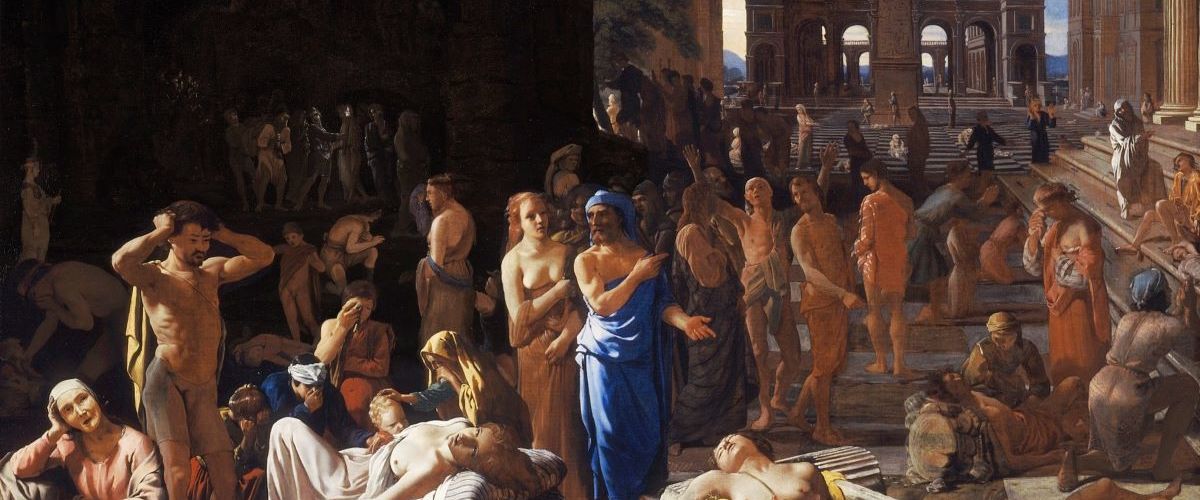

Tom's Postcard from Home
As a classicist, the coronavirus pandemic has made me think about plagues throughout history, particularly in ancient literature. The above image is Plague in an Ancient City by Michiel Sweerts, c. 1652-54.
Thucydides’ account of the Plague of Athens in 430 BC is the most referenced of these in current news, and the plague itself, believed to be Typhus or Salmonella, was similar in several ways to today’s coronavirus pandemic. It came from abroad, possibly Africa, and in response the Athenian Assembly tightened laws, particularly regarding the punishment of foreigners pretending to be citizens. Pericles, at the time the leader of Athens, died of the disease. Britain came pretty close to a similar loss a few weeks ago. The plague saw a great shift in the power of the ancient world, handing victory in the Peloponnesian War to Sparta and her allies, just as COVID-19 has shifted the balance of global power further in Beijing’s favour. Finally, the plague returned twice, in 429 BC and the winter of 427/6 BC, and we are continually warned of second and third waves of the current pandemic.
However, the similarities stop there. The Athenian Plague killed 100,000 in the city alone. Coronavirus is struggling to double that number on a global scale. The plague could transmit via wild animals, and while we hear horror stories of bats being lapped up in Chinese wet markets, we are assured that our dogs are at no risk of becoming infected. The final difference worth mentioning is that I for one do not feel as though an infectious sword of Damocles is hanging over me, and nor, by all accounts, do others. Britain has not seen a breakdown in law and order, unlike ancient Athens, and nor has the rest of the world yet.
Although it seems like quarantine is about to be abandoned by our cousins across the pond, it must be remembered that we are living in a modern world, faced with a disease we will be able to cure, and that for all of us in the Winchester community, we have access to many facilities to improve our quality of life and learning in this trying time, a far cry from ancient Athens.


 Head back to stories
Head back to stories